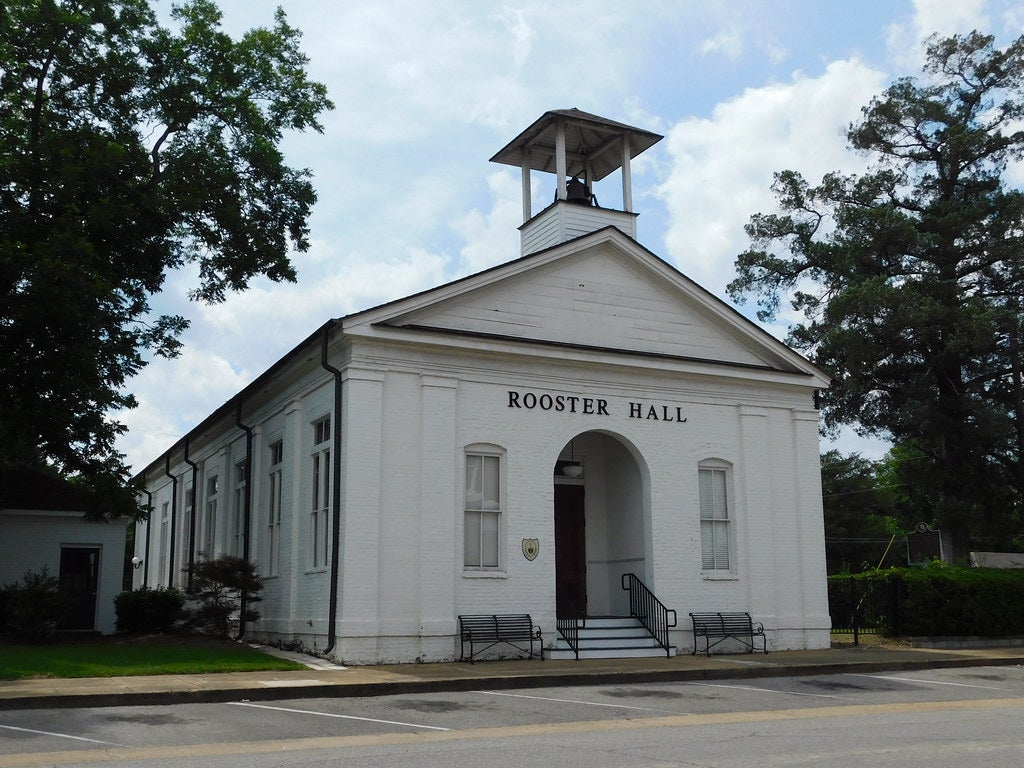ADECA hosts broadband meetings in Demopolis
Published 6:32 pm Tuesday, December 20, 2022
|
Getting your Trinity Audio player ready...
|
On last Friday, December 16, the Alabama Department of Economic and Community Affairs’ (ADECA) Alabama Community Broadband Technical Assistance Program (TAP) initiative meetings at Demopolis’s Rooster Hall to provide information on the program and hear the concerns and needs of Marengo County residents. Meetings were attended by Demopolis Mayor Woody Collins, Marengo County Commissioners Fred Armstead, Jr. and Jason Windham, members of the press, and other entities interested in the program.
Joanne Hovis of CTC Technology and Energy was the speaker for the event and she began with an explanation of the broadband program timeline, starting with the Technical Assistance Program. The TAP provides technical assistance to units of local government and other public stakeholders in Alabama seeking to expand broadband infrastructure and services to help communities prepare for broadband deployment and digital opportunities.
Funding for this program comes through grants from the U.S. Department of Commerce Economic Development Administration and the National Telecommunications and Information Administration (NTIA). The program helps communities conduct broadband planning to prevent, prepare for, and respond to impacts of the pandemic, meet goals of the Alabama Connectivity Plan, and improve broadband adoption in communities of greatest need.
“It is our dream that some of these funds will at some point provide fibers to the desktop for everyone. I don’t know a single home in Demopolis that is supplied by fiber,” said Mayor Woody Collins. “Our hope is that some of these funds trickle down to the competitive groups that we can eventually get to the desktop. That’s where the magic is.”
Hovis said that based on what they learn from the broadband meetings and the data they collect, they will develop and then present a county profile in 2023. The profile will show where the county is, if the county has broadband and what kind, where it is and who is adopting it.
The two different types of federal funds that will be available. The largest of the two is the state broadband infrastructure that includes the initial proposal and a 5-year action plan that will be discussed throughout 2023. The final proposal for broadband deployment is expected for 2024. In 2025, funds are expected to start flowing after receiving approval from the NTIA for the final proposal.
“I can say that I feel reasonably confident given what we expect the allocation funds to be,” said Hovis. “In five or so years from now, we should be able to look back and say that we solved most of this problem on a national basis.”
Marengo County Commissioner Fred Armstead expressed his hopefulness that the program will have a positive impact on the county and will underserved areas much needed internet access.
“So many times the Black Belt area is left out when it comes to certain funding. We’re eager to see what actually happens with this program,” said Armstead. “We’re in a 10 county regional planning commission and they are some of the most rural counties in Alabama. So we are very hopeful that this will happen and will help rural Alabama.”
The next topic was digital opportunity and equity which outlined what the program can provide for residents in an area with broadband connection. Broadband access is affordable, accessible, and provides high-speed home internet service for all individuals. Accessible and inclusive content where public content is available to all individuals, devices and tech support, privacy and security, and digital literacy and skills.
The Affordable Connectivity Program (ACP) was another topic of discussion during the meeting. The ACP is a federal benefit program that pays a $30 monthly subsidy for internet services. Households qualify for the ACP based on income or their participation in assistance programs like SNAP (Supplemental Nutrition Assistance Program), Medicaid, or the free and reduced-price school lunch program.
Once enrolled, residents alert their internet service provider (ISP) to have the discount automatically applied to their bills. If a household does not already have service, they can find a participating ISP in their area and subscribe to a new service.
An important topic near the end of the meeting was funding opportunities and how counties can benefit from these programs. One program is the Capital Projects Funds (CPF) worth $181 million that Alabama ISPs can apply for broadband-related projects. ADECA will make grants to eligible Alabama ISPs for last-mile broadband deployment to unserved households.
Another program is the Rural Digital Opportunity Fund (RDOF) worth $20.4 billion nationwide over 10 years ($16 billion in Phase 1). Alabama ISPs can apply for broadband related projects, and network expansions help close gaps in coverage.
Over the next few years, the state of Alabama will make unprecedented funds available for this specific purpose, and engagement from elected officials, internet service providers, government and community anchors, community-based organizations and the general public will be critical to shaping the state’s plans and in positioning counties to take maximum advantage of these opportunities.
“ADECA’s goal with this program is to extend assistance with broadband mapping and planning to the county level,” ADECA Director Kenneth Boswell said. “This will help counties and communities develop plans and data to help take advantage of the many future opportunities for grant funding to help internet service providers expand broadband access to unserved areas.”


